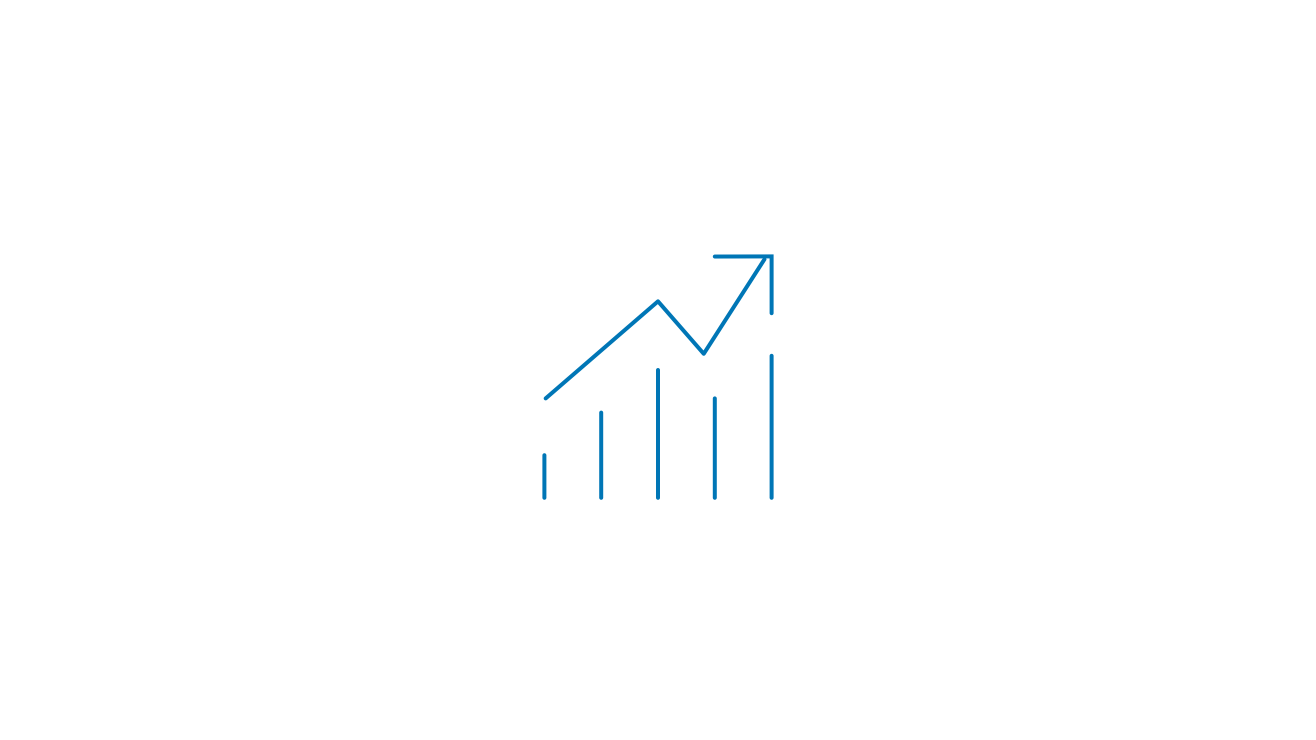Tax-free investing
ISA allowance for the 2024-25 tax year will remain at £20,000, of which a maximum of £4,000 can be paid into a lifetime ISA.
Tax rules can change and any benefits from them depend on your circumstances.
Find out how Individual Savings Accounts (ISAs) work and understand the differences between cash, investment, innovative finance & lifetime ISAs.
The value of investments can fall as well as rise. You may get back less than you invest. Tax rules can change and their effects on you will depend on your individual circumstances.
In this special edition of our personal finance podcast, Barclays’ Clare Francis and Rob Smith discuss everything you need to know about investment ISAs, and why you shouldn’t wait until 5 April to use your allowance.
Welcome to Word on the Street’s personal finance podcast from Barclays UK where our experts share their knowledge and insights to help you become a better and more confident investor.
CLARE FRANCIS: Hello and thank you for joining our regular personal finance podcast series Word on the Street. I’m Clare Francis, Savings and Investments Director at Barclays, and today I’m also joined by Rob Smith our Head of Behavioural Finance. We're going to be talking about ISAs, what they are, how they work, the benefits they offer, and how you can use ISAs to help your money work harder for you and achieve your long-term financial goals.
Before we start it's important to remember that when it comes to investing, stock markets can fall as well as rise, so there's always a chance you could lose some money. Also, as we'll come on to, ISAs offer tax benefits but be aware that tax rules may change in the future and their effects always depend on your individual circumstances.
Hopefully Rob and I will improve your knowledge and understanding around ISAs but we don't offer personal tax advice so if you're unsure about next steps please seek independent financial advice. Since ISAs were first introduced back in 1999 there have been a number of changes to the rules and the range of ISA products available. So to start with we'll give an overview of what ISAs are and how they work.
Basically an ISA is a tax-efficient wrapper within which you can hold cash and investments and each tax year you can put up to a certain amount within an ISA and any returns you make on that money is free of UK tax. The current ISA allowance is £20,000 and you've got until the 5 April to make use of it. You'll get another allowance when the new tax year starts on the 6 April but any unused allowance from this tax year can't be carried over so the clock is ticking if you haven't used yours yet.
There are five different types of ISA: investment ISAs, cash ISAs, lifetime ISAs. innovative finance ISAs and junior ISAs. In this podcast we're focusing purely on investment ISAs which are also often called stocks and shares ISAs. Now you can hold a wide range of investments within an ISA: funds, shares and bonds, exchange traded funds and investment trusts. And as I've already mentioned, the great thing about ISAs is you don't pay tax on any returns you make.
If you invest outside of an ISA in a standard investment account, you may be liable for capital gains and dividends tax if you go over the annual allowances for those. However, despite their tax efficiency, millions of people fail to make use of their ISA allowance, so Rob why do you think this is?
ROB SMITH: Hi, Clare. I think there's a few reasons that are worth talking about why people don't take full advantage of those ISA allowances as you say. One important reason is that people don't necessarily appreciate the effects of sheltering money from tax in the long term.
So the money that you save in tax through using a wrapper account, like an ISA, can then earn returns in future years and so as your future time horizon grows, the benefit multiplies as the timing increases. Understanding this effect, that's often called compounding, also applies to returns and affects why people don't necessarily see that the value of long-term investing in the first place.
CF: So effectively you're earning returns on your returns?
RS: Exactly. And the longer the time period over which you earn returns on those returns it compounds. And it really does increase quite quickly. So I think just to give you a hypothetical example: if you imagine that you have an investment of £5,000 which paid an income of 4% and the price of that investment grew at 2% per year we're talking about.
So it might be tempting to think that the effect of tax on that 4% of your investment is going to be quite small because 4% itself is quite a small number. But actually over 15 years, over a longer time period, it can mean almost £1,300 extra, assuming that the current tax rules in place now and that's 12% of your original investment. So it's a very significant amount. And that's without thinking about any benefits of capital gains if, like I said, that investment's going up in value and you're outside any allowances you have.
I think the other point to mention when we talk about why people don't take them up is a general lack of awareness of what they are and their benefits. And then probably the final thing that that relates to is there a lot of misconceptions around ISAs, particularly investment ISAs, and what you can and can't do. I think one of those is you have to contribute the full amount of your allowance which is not sure at all.
You don't have to use your whole ISA allowance over the year or at any one point in time so you can just put away what you can afford and you can make those payments ad hoc or as regular payments throughout the year whatever suits you. I think the second misconception is really around the access you have to the money that you put away once you've put it into an ISA and that you can't take that money out when you like.
But the reality is there is a lot of flexibility within the ISA products that we have at the moment.
CF: Let's come on to the flexibility but I think the other thing on that angle is linked to the fact that when we talk about investing we talk about investing for the long term and as you've mentioned the benefits of compounding and also investing for the long term to help ride out any ups and downs in the market.
But obviously if you need to get at your money you can and I think that's a really important point that people should be aware of isn't it? And then added to that are what we're going to come on to next which is the flexibility that ISAs have now offer and how that has changed. Can you just talk a little bit about that?
RS: Yes, so there have been many changes as you mentioned earlier in the podcast. There have been many changes to ISA rules over the years and nowadays they are a lot more flexible than they ever have been. One of the key things is that although you can't carry your ISA allowance over from one year to the next, if you take money out of your ISA you can pay it back in within the same tax year without it affecting your annual allowance.
So just as an example if you put in £5,000 into your ISA within one tax year, you can take up to £5,000 out of that account and then put it back in without it affecting your allowance as long as you do it within the same year. One thing to note on that though is that not all providers offer this flexibility so it's important to check but here at Barclays our investment ISAs are fully flexible.
I think when we're talking about that flexibility one thing to bear in mind though is with investing you really want to give your money as much time as possible invested in the markets to grow. One of the industry rules of thumbs is to only invest money that you can put away for five years or more to take advantage of the longer term returns that we see from investing in this way.
But people then often worry about investing because of the what ifs – so what if I need some of that money or all of that money in in less than five years’ time therefore I can't be investing?
The reality is that it's impossible to say 100% for sure that you're never going to need any of a pot of money at some point in the future but the flexibility that exists means that as long as you're reasonably certain about some of these things you can still get invested with the comfort in mind that if you really need to, you can sell those investments, and all the investments that you'll be able to buy in an ISA will be reasonably quick to sell, and then withdraw the money from an ISA. That flexibility does exist.
CF: I think another factor that can put people off, and I guess this applies to investing generally not just whether or not you use an ISA, is worrying about whether or not it's the right time to invest? We know stock markets go up and down, so how do you know if it's a good time to put your money in?
RS: That's a really good question, Clare. I think that's one of the questions that we get asked the most is now really a good time to get invested or to put money into investments and that's the same no matter what stage of investment journey people are on.
The first thing that I would say about that question is with investing it can often feel like it's sort of never the right time to be invested a bit like, I’ll draw parallel here to other areas of our personal lives, if you think about changing jobs or about where you live and potentially upping your roots and moving to another location. They can never seem like easy decisions at the time and it can always seem like: “well, we'll just wait until things are better; there's a perfect time and it'll come along and then that'll make sense”.
The reality is if you do that you often end up waiting indefinitely because those perfect situations don't really occur. And that's the same for investing, especially when you consider that for most of us, how we judge investments often comes from the news stories we hear; and the weight of mainstream media news stories always seems to be towards the negative, especially around what we think about the economy and markets.
I think a good example is quite often the reason why financial markets are in the mainstream media is when things aren't necessarily going well. So there's never a lack of reasons why the economy or markets may not do well but the problem is if you're trying to wait for the perfect time you may miss out on a period of good returns and then find it even harder to buy investments. If things have gone up in price it may seem even more likely that things may fall in the future and now's not a great time.
So I think the irony is that the very best time to get invested is when prices have fallen and thus it's likely to be an uncomfortable time because we're likely to be surrounded by negative news a short-term negative outlook which is the reason for why prices have fallen.
So it's never that easy just to be like: “well, I’ll invest when prices are lower” because we often find it difficult to do that I think historically investment markets as a whole, so I’m not talking about individual stocks and shares here but the markets as a whole, have grown more often than not and over the longer periods, so five-year period or greater.
They've been few times where they've lost money over those periods. Now although I will say and I have to say that past performance of an investment is no guide to its future performance, but it's because of this that we advocate investing in a range of different assets, for example shares and bonds, different geographies, so different countries, and different sectors, so across different industries.
If you do this it means that you don't necessarily need to know the future and worry too much about the potential for one potential negative future to come about because you're not relying on any one specific outcome, one specific country or industry or company, but instead you participate in the more general longer-term return of the market.
CF: And of course you don't have to invest your ISA allowance all in one go do you?
RS: No not at all. And I think many people, it's obvious to say now, many people save periodically depending on when they get paid, how they budget and investing regular contributions can be a great way of building up your confidence and comfort with investing especially if you've never done it before.
But this strategy of investing a little bit of time can also be good if you do have a larger lump of money that you can put away but are really a bit nervous about investing it all or investing it all at once.
So although generally as a rule we say to invest as much as you can as soon as you can to maximise the amount of time you're invested and the returns you can get, if you're nervous and that's preventing you from getting invested then you're putting a smaller amount in at a time can make it less daunting and can ease you into investing.
The benefit of doing this is that if prices do fall in the short term then you're buying at lower levels at lower prices which reduces the average price you pay which is obviously a good thing but it can also work the other way around. So if markets go up or continue to go up in the short term then obviously you're going to be buying those same investments at a slightly increased price. There's no guarantee in terms of how it will work out but it definitely helps get people invested.
CF: What about people who haven't yet used any of this year's ISA allowance because obviously there's not long left of the tax year so there isn't much time to phase your money in gradually?
RS: Yes, that that's true and I think it's as we've talked about before. It's worth using as much of your allowance as you can afford to but if you're worried about whether now's a good time to invest or you aren't sure where to put your money, you don't have the time to really think about it, the important thing to say is you don't have to invest it straight away. So we're coming back to your point Clare.
You can open an investment account, transfer cash into that account so you don't lose your allowance for the current tax year, but then wait until you're ready before you invest it.
And I think whether that be because you're looking to put in a little bit of time or just you're not quite ready to make that decision yet, a couple of notes of caution here though if you do put your cash into an investment account and leave it is as I mentioned before, it often feels like it's never the right time to invest.
I’d say that to ensure that you don't end up just leaving the cash there and continuing to sit out of the investment markets, is to make maybe a rule, a sensible rule for when you will get invested. So maybe if the markets fall by a certain percentage or a period of time, so after three months I will get invested. And the other thing to know is also just don't forget because I’ve definitely done this before.
We're all human at the end of the day and you put your cash in the investment account thinking that I’ll come back to it when I’ve just got a little bit more time and then that day never comes about. So if you do that I’d say set a reminder as well to make sure that the good intentions you have actually don't just remain there.
CF: And fair play to you for admitting to that one there. I think when we come to this point in the tax year we always see a last-minute rush as people look to use their ISA allowance before the tax year ends. And it's definitely better that people do use it rather than lose it. But if you're trying to get into good habits for next year, is it a good time to leave it late or would you suggest a different approach?
RS: I’d say don't wait until the end of the tax year in general to invest. Often it ends up being that way because maybe we're not quite as organised but as we've talked about before people generally tend to save throughout the year but often we see them saving throughout the year and then using their allowance right at the end of the year. That obviously means you're going to miss out on any potential gains and performance during that time.
So I’d say my advice I guess would be to use regular contributions to match how much you can afford. So when you're saving maybe put a certain amount of it into a savings account for short-term emergency use or what have you and then a certain amount of it may go into an investment ISA for those longer term goals. And you can do that so it's automatic.
Those payments go automatically and that then means that you can invest it and again you can set up automatic regular investing so it automatically gets invested into certain investments and then you take away any of the burden of having to think about it on a regular basis. So I’d say act sooner rather than later. If you can, take advantage of the current tax year’s allowance rather than waiting for them to reset next year because the longer you can be invested all the better.
CF: Thank you very much, Rob, I’m sure that's been a great help to those listening. I think it's also worth pointing out that there are different ways to invest and here at Barclays we offer a number of options. So if you'd like to manage your own investments and are comfortable about making your own investment decisions, our Smart Investor could be just what you're looking for and could suit your needs.
But if you're looking for help or don't feel you've got the time to do it yourself, we've also got our digital service Plan & Invest where our investment experts will select and manage your investments for you; and for anyone with more than £500,000 in liquid assets, you could be eligible for our Wealth service, which provides financial planning and investment advice. You can find out more about all of these services by visiting www.barclays.co.uk.
That's it for today, so thank you, Rob, for joining me and thank you all for listening. I hope you found it useful.
This podcast is not a personal investment recommendation. All tax rules can change in future and their effects depend on your individual circumstances which can also change. We don't offer personal tax advice; you should obtain this independently if you are unsure. Investments can fall as well as rise in value and their past performance is not a reliable indicator of future performance.
All income or gains you receive in your ISA will be protected from income tax, tax on dividends and Capital Gains Tax (CGT).
However, tax rules can change and any benefits from them depend on your circumstances. Bear in mind too that investments can fall in value. You may get back less than you invested.
A savings account based on a fixed or variable deposit rate.
A higher risk arrangement that allows you to lend your savings out to borrowers through peer-to-peer lending platforms.
Also known as a stocks and shares ISA, an account that allows you to invest in a wide range of assets, including cash, funds, shares, gilts, bonds, exchange traded funds (ETFs), exchange traded commodities (ETCs) and investment trusts.
The lifetime ISA is a deposit account which helps savers get on the property ladder for the first time or contribute towards their retirement savings. The government pays a 25% bonus on cash paid in, up to a maximum of £4,000. But they're not flexible and there are penalties if you withdraw money for other uses.
ISA allowance for the 2024-25 tax year will remain at £20,000, of which a maximum of £4,000 can be paid into a lifetime ISA.
Tax rules can change and any benefits from them depend on your circumstances.
A wide range of investment options to choose from with increased flexibility.
You can split your ISA allowance between a cash, investment, innovative finance, or lifetime ISA,1 provided you stay within the £20,000 limit.
You can take advantage of the flexible ISA rules with Barclays – you can withdraw money from our Investment ISA and replenish it within the same tax year, without this counting towards your annual ISA limit. Not all ISA providers offer this flexibility. Maximum of £4,000 can be paid into a lifetime ISA per year.
You can transfer money freely between a cash ISA, an investment ISA and an innovative finance ISA, as your needs and risk appetite changes over time.
If you move any money out of a lifetime ISA, however, you’ll forfeit the government bonus and face a 5% charge on the amount transferred out. You can transfer cash or investments into a lifetime ISA up to the annual limit, and still receive the government bonus but it doesn’t represent use of your annual allowance.
The value of investments can fall as well as rise. You may get back less than you invest. Tax rules can change and their effects on you will depend on your individual circumstances.

Easy, tax-efficient, low-cost investing
Grow your money in a tax-efficient ISA. Invest up to £20,000 per year with a simple low annual charge and dedicated customer support.
Get started in minutes and secure your annual allowance with a debit card, a monthly Direct Debit or by moving money from your Barclays account. There’s no charge to hold cash if you need some time to decide where to invest.
You can also transfer an existing ISA2 to benefit from our award-winning ISA service.3
There are a number of reasons why transferring your Individual Savings Account (ISA) could stand you and your investments in good stead, although make sure you’re aware of the potential drawbacks too.4




